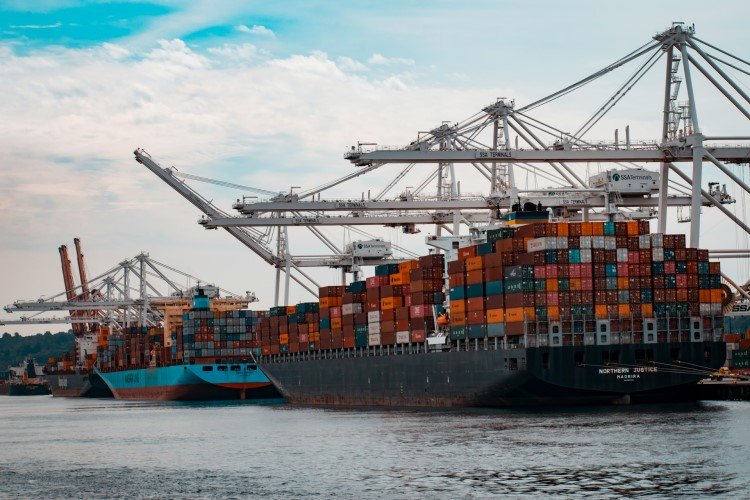
How to Find Reliable Suppliers Overseas: A Step-by-Step Guide
Author:White Fox Corporation
Published on:Apr 11 2025
Ever tried sourcing a product overseas and ended up with late deliveries, poor quality, or total silence?
Or maybe you’ve got a solid product idea, but no clue how to find a trustworthy supplier across the globe?
The World Trade Organization (WTO) projects that global merchandise trade volume will grow by 3.3% in 2025. This shows a steady recovery and creates chances for international business growth.
As businesses continue to expand internationally, tapping into overseas suppliers offers a massive opportunity to cut costs, access new products, and scale faster. But that opportunity only pays off if you partner with reliable suppliers.
In this blog, we’ll walk through a step-by-step guide to help you find dependable suppliers abroad.
Understanding the Importance of Finding Reliable Suppliers
Let’s face it your business is only as strong as your supply chain. And in international trade, that chain starts with your supplier.
Why it matters:
-
Quality control: A reliable supplier ensures your product meets expectations every time.
-
On-time delivery: Delays from unreliable vendors can throw off your entire operation.
-
Legal compliance: Trustworthy suppliers stay aligned with international trade regulations.
A report by McKinsey & Company found that supply chain disruptions cost businesses an average of 45% of one year’s profits over a decade largely due to supplier issues.
Common challenges with overseas suppliers:
-
Language and communication barriers
-
Time zone differences
-
Lack of transparency
-
Difficulty in enforcing contracts
What Makes a Supplier Reliable?
Not all suppliers are created equal. Some look great on paper but falter in execution.
Key traits of a reliable supplier:
-
Strong reputation (check for long-standing client relationships)
-
Responsive communication
-
Certifications like ISO, CE, or FDA approval
-
Transparent pricing and policies
Why it’s important:
Choosing an unreliable supplier can result in:
-
Defective products
-
Missed deadlines
-
Damaged customer trust
-
Legal trouble due to non-compliance
Step 1: Research and Identify Potential Suppliers
Your search starts online, but that’s only the beginning.
Where to look:
-
B2B marketplaces: Alibaba, Global Sources, Made-in-China
-
Online directories: ThomasNet, Kompass, ExportHub
-
Trade shows and expos: Great for networking and first-hand inspection
-
Chambers of commerce and trade councils: They often have vetted supplier lists
Look for consistent reviews, verified business licenses, and established years in business.
Using Export-Import Services and Companies for Supplier Search
When you don’t have time (or local know-how), working with export-import companies can save you from costly mistakes.
Here’s how they help:
-
Vetting suppliers through existing networks
-
Conducting site visits or audits
-
Managing negotiations and paperwork
-
Providing access to tried-and-tested supply channels
By leveraging export and import services, you gain peace of mind and reduce the risks tied to unfamiliar markets. These companies often have established relationships with manufacturers, making your job a lot easier.
Step 2: Evaluate the Supplier’s Capabilities and Certifications
Once you’ve shortlisted potential suppliers, it’s time to dig deeper.
What to evaluate:
-
Production capacity: Can they scale with your demand?
-
Product quality: Request samples and run third-party inspections.
-
Compliance and standards: Ensure they meet legal and industry benchmarks.
Certifications speak volumes.
For example:
-
ISO 9001: Quality management
-
CE Marking: EU product compliance
-
RoHS: Restriction of hazardous substances
Engaging in Due Diligence and Verifying Supplier Claims
Don't just believe everything you see, check the facts.
Here’s how:
-
Background checks via platforms like Dun & Bradstreet
-
Third-party audit services such as SGS, Bureau Veritas, or Intertek
-
Ask for business registration documents, tax certificates, and client references
Platforms like ImportYeti allow you to explore a company's suppliers, offering insights into their sourcing practices. A little due diligence now can prevent a world of headaches later.
Also Read - https://whitefoxcorporation.com/blog/key-documentation-in-import-export-what-you-need-and-why-it-matters/
Step 3: Communication and Negotiation
Communication can make or break your international partnership.
Best practices:
-
Clarify expectations upfront: Define lead times, quality checks, and packaging standards.
-
Set clear payment terms: Consider using escrow or letter of credit for security.
-
Be mindful of time zones: Use tools like World Time Buddy to coordinate meetings.
-
Use written communication for records: Email or contract over chat whenever possible.
Strong communication leads to better negotiation. It also helps build trust, which is the backbone of long-term collaboration.
Leveraging Import-Export Management for Seamless Communication
Professional import-export management services can be game-changers when working across borders.
Benefits include:
-
Multilingual support to bridge language gaps
-
On-ground representatives to handle logistics
-
Contract review and mediation to avoid disputes
-
Cultural knowledge that can improve negotiations
By working with these professionals, you avoid miscommunication and ensure your agreements are airtight and transparent.
Step 4: Setting Up the Contract and Logistics
After shaking hands (virtually or in person), it’s time to get everything on paper.
Key contract points:
-
Product specifications and quality standards
-
Delivery timelines and Incoterms (e.g., FOB, CIF)
-
Payment terms (advance, L/C, Net 30)
-
Penalties for delays or non-compliance
-
Warranty and return policies
Logistics to consider:
-
Customs documentation (invoices, packing lists, certificates)
-
Shipping methods (air, sea, courier)
-
Insurance coverage for goods in transit
-
Compliance with import regulations in your country
Export-import services often offer end-to-end support here making sure your goods clear customs without delay and land where they’re supposed to.
Conclusion
Finding a reliable overseas supplier isn’t just a task, it's a strategy. It requires research, patience, negotiation skills, and a good eye for red flags.
By using the right import-export management tools, working with export-import companies, and taking advantage of export and import services, businesses can source confidently and scale globally without the typical headaches.
In a world where global trade is growing faster than ever, forming strong, dependable relationships with international suppliers can give your business the edge it needs.
Play it smart, source it right, and grow without borders.
Need Help Finding Overseas Suppliers?
At Whitefox Corporation, we specialize in sourcing and managing trusted global suppliers so you don’t have to worry. From supplier verification to logistics coordination, our export and import services cover everything you need for smooth international trade.
Reach out today and let’s build a supply chain you can count on.


